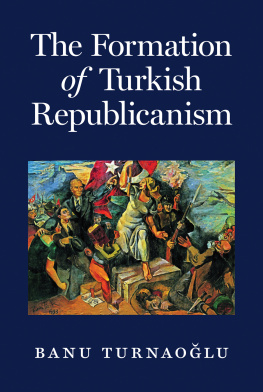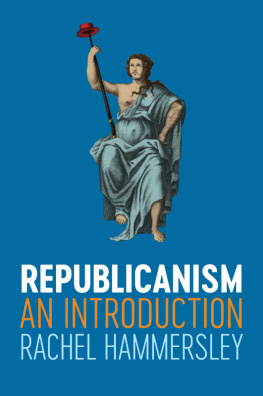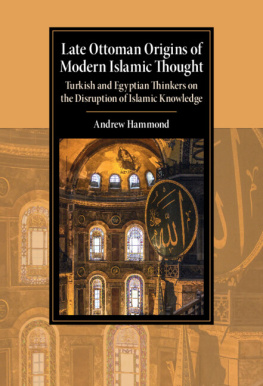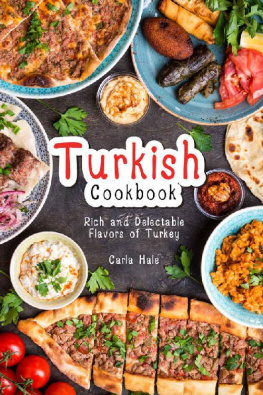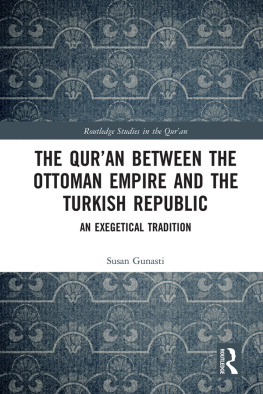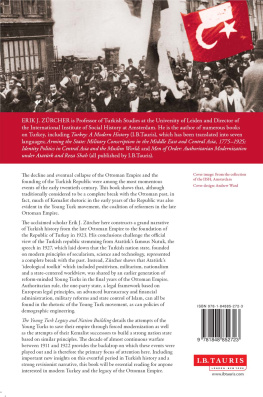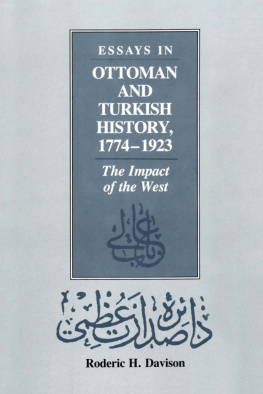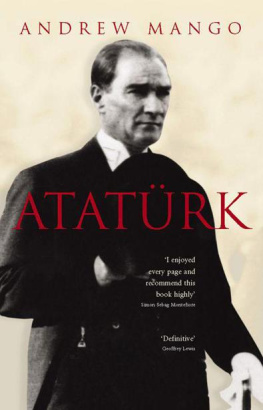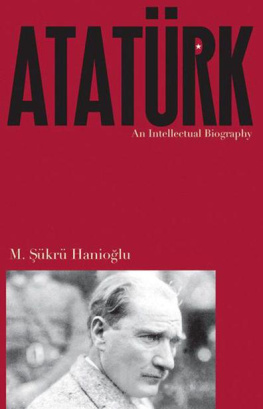
THE FORMATION OF TURKISH REPUBLICANISM
THE FORMATION OF
Turkish Republicanism

Banu Turnaolu
PRINCETON UNIVERSITY PRESS
PRINCETON & OXFORD
Copyright 2017 by Princeton University Press
Requests for permission to reproduce material from this work should be sent to Permissions, Princeton University Press
Published by Princeton University Press,
41 William Street, Princeton, New Jersey 08540
In the United Kingdom: Princeton University Press,
6 Oxford Street, Woodstock, Oxfordshire OX20 1TR
press.princeton.edu
Jacket art: nklap Yolunda (On the Road of Transformation), by Zeki Faik zer, 1933. From the collection of the Istanbul Painting and Sculpture Museum, Mimar Sinan Fine Arts University. Courtesy of Professor Ayegl zer.
All Rights Reserved
Library of Congress Cataloging-in-Publication Data
Names: Turnaolu, Banu, 1983- author.
Title: The formation of Turkish republicanism / Banu Turnaolu.
Description: Princeton : Princeton University Press, 2017. | Includes bibliographical references and index.
Identifiers: LCCN 2016059881 | ISBN 9780691172743 (hardback : acid-free paper)
Subjects: LCSH: TurkeyPolitics and government. | TurkeyHistoryOttoman Empire, 1288-1918. | Atatrk, Kemal, 1881-1938Political and social views. | RepublicanismTurkeyHistory. | Islam and politicsTurkeyHistory. | LiberalismTurkeyHistory. | TurkeyIntellectual life. | BISAC: HISTORY / Middle East / Turkey & Ottoman Empire. | HISTORY / Modern / 20th Century. | POLITICAL SCIENCE / History & Theory.
Classification: LCC DR486 .T875 2017 | DDC 320.45609/03DC23 LC record available at https://lccn.loc.gov/2016059881
British Library Cataloging-in-Publication Data is available
This book has been composed in Miller.
Printed on acid-free paper.
Printed in the United States of America
10987654321
For my beloved family
CONTENTS
ACKNOWLEDGMENTS
THIS BOOK IS BASED on my doctoral dissertation written at the University of Cambridge in the Department of Politics and International Studies (POLIS). It has been several years in the making, and during the course of its research and writing, many people and institutions have put themselves out to help me generously. Foremost, I am deeply grateful for the understanding, patience, and lucidity of my supervisor, Professor John Dunn, throughout my efforts to craft, organize, and successfully complete it. His instructive judgment, attentive and patient help, directness, and continued encouragement and faith in my work and ideas have been very much appreciated. I am greatly indebted to him for sharpening and clarifying my thinking by intensive intellectual interaction and for investing huge amounts of time and energy in my academic career. I should also like to extend my gratitude to Professor kr Haniolu and Dr. Christopher Brooke for their constructive suggestions and their strong encouragement to turn my dissertation into a book.
I have had indispensable and prompt aid from many scholars in Cambridge and beyond. I am particularly indebted to Dr. Duncan Kelly for his assistance, encouragement, and kindness. are the outcomes of my research as a Research Assistant for his book project on the history of political and economic ideas during World War I at POLIS. I would also like to acknowledge the graciousness and inspiration of several teachers who taught me early on in my career: Dr. Yonca Kksal, who first instilled in me an enthusiasm for Ottoman history and commented on several chapters of this study; Professor Fuat Keyman, Professor Ziya ni, and Dr. uhnaz Ylmaz, who introduced me to the historical study of political theory and remained a constant and valuable source of guidance over the years; Professor Michael Freeden, who introduced me to academic discussions on republicanism and political ideologies during my MSc at Oxford; Dr. Isabel DiVanna, who taught me much about positivism at Cambridge; and Professor Stuart White and Dr. Karma Nabulsi, who urged me to think further and deeper on radical republicanism.
A version of Transformation, 1933, from the collection of the Istanbul Painting and Sculpture Museum, Mimar Sinan Fine Arts University) for my cover image.
I should like to acknowledge the assistance of a number of institutions and thank their knowledgeable archivists and staff: the ISAM (Centre for Islamic Studies), Atatrk Ktphanesi (Atatrk Library), and Ko University Library in Istanbul; Milli Ktphane (National Library) in Ankara; La Maison dAuguste Comte and the Bibliothque Nationale de France in Paris; and the University Library in Cambridge. I am grateful to POLIS and Kings College, Cambridge, for providing me with the facilities and conducive conditions for my book. I owe a particularly heartfelt word of thanks to Selahattin ztrk for responding to my numerous queries and requests with promptness, patience, and kindness; providing me with archival material and rare books; and helping me transcribe the Ottoman texts.
The final stages of writing owe a great debt to Elizabeth Hubert and Laura Morley, who have thoroughly read, edited, and commented on my book in whole or in part, yielding numerous refinements, and who saved the work as a whole from a number of errors and failings of consistency. The shortcomings that might remain are my own responsibility.
I am deeply grateful to my friends in a variety of settings for their help, encouragement, and intellectual companionship: Alia Al-Kadi, Nayla Aramouni, rem Kprl, Sukhneel Toor, Selin ztrk Jami, Samir Puri, and especially Victoria Phan, who nudged me in the right direction, shouldered many of my burdens, and selflessly supported me from the beginning until the very last moment of this journey.
Words cannot express how grateful I am to my family, to whom I affectionately dedicate this book with love. I could not have embarked on this project without the will and stalwart encouragement of my uncle, Ergun Tuncay. I am delighted to thank my cousin and best friend, Gizem Apak, for her unfailing moral support at a very low time. I owe everything to my remarkable parents, Glgn and Ali Turnaolu, and grandparents, Emel and Kazm Tuncay, for what they have given and taught me. Warmest thanks go to my mother for making all the sacrifices on my behalf, providing me with much needed nurture, always keeping things in perspective, and unswervingly supporting me at every stage of its writing. Above all, I am indebted to my grandfather (now passed on), who originally inspired me to study politics, philosophy, and history.
Cambridge, November 2016
DRAMATIS PERSONAE
AAOLU, AHMED (18691939) Azeri-born essayist, nationalist, journalist, statesman. Originally Ahmed Agayef, later Aaolu Ahmed, and after 1934 Ahmet Aaolu. Moved to Paris in 1889. Attended seminars at College de France and came under the influence of Ernst Renan and James Darmesteter. Returned to Azerbaijan in 1894 and moved to Istanbul in 1909, where he joined the Committee of Union and Progress (CUP). Promoted Turkish nationalism actively together with Ziya Gkalp, Yusuf Akura, and Mehmed Emin (Yurdakul). In 1913, was appointed professor of Turkish history at Istanbul University. Elected deputy to the parliament and a member of the Central Committee (Merkez-i Umumi) of the CUP. In 1919, was exiled to Malta. Upon his return in 1921, joined the nationalists in Ankara and became the editor of the new Turkish governments official propaganda organ, Hkimiyet-i Milliye (National Sovereignty). Drafted the Constitution of 1924 together with Ziya Gkalp. One of the founders of the short-lived opposition Liberal Party (
Next page
